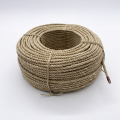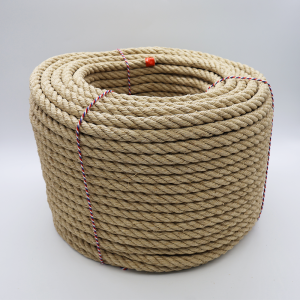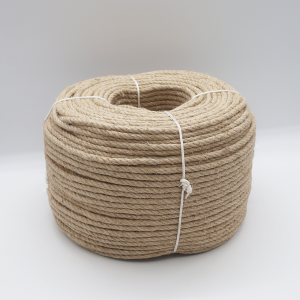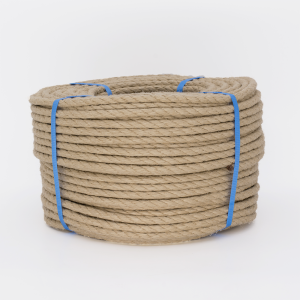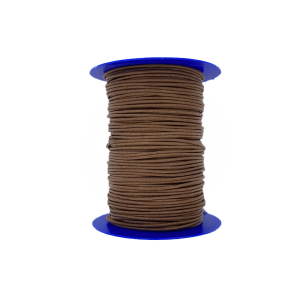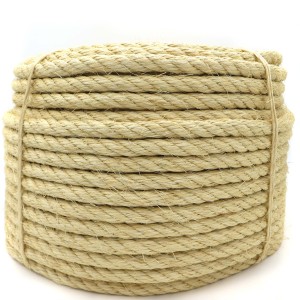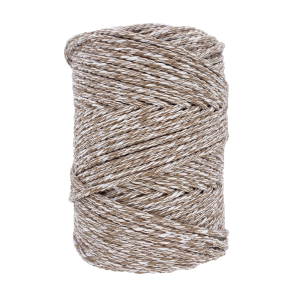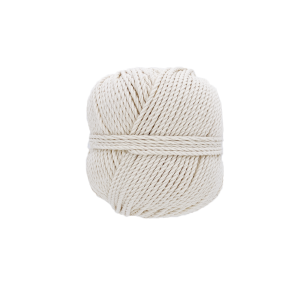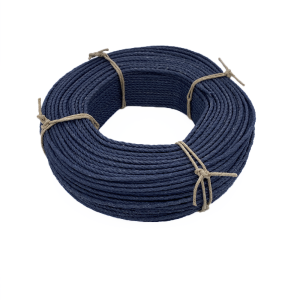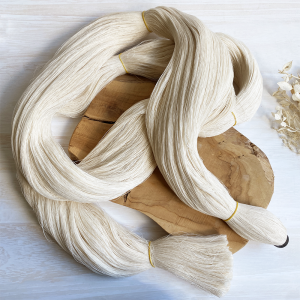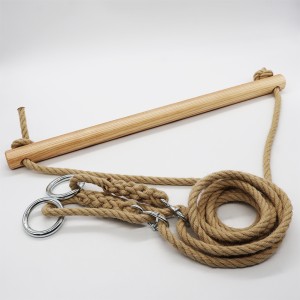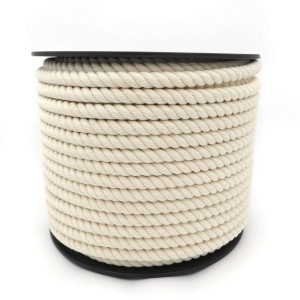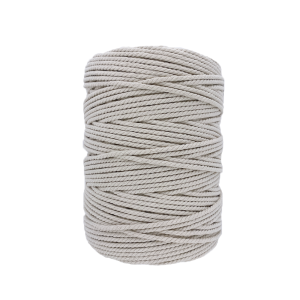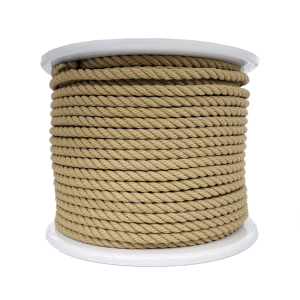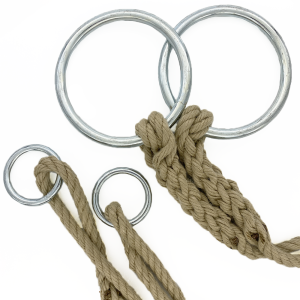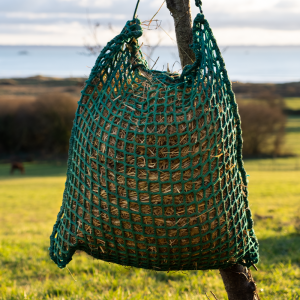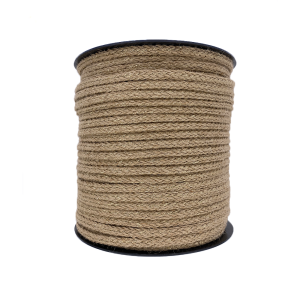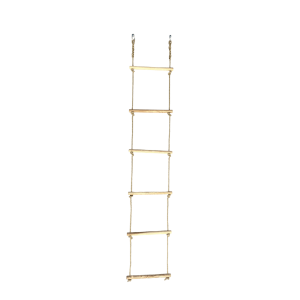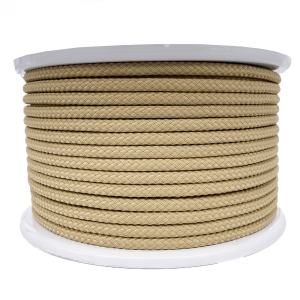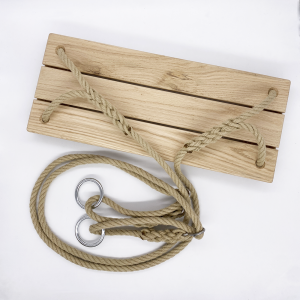Many natural fibres are used to make rope:
- hemp
- cotton
- sisal
- jute
- linen
- coconut fibre
The strongest material is hemp. The most used materials in decoration are cotton and jute.
- Polypropylene
- Textured polypropylene (synthetic hemp)
- Polyester
- Nylon (Polyamide)
- Polyethylene
- Steel
- Latex
The breaking strength of a rope varies according to its raw material, construction, density, and diameter.
The tensile strength is the tensile capacity of a new rope when it is new, static, straight, knot-free and splicing-free. A tolerance of +/- 7% is always applied for the breaking resistance of a rope. For safety, no more than 80% of the breaking load of a rope when it is new should be used.
Expressed in KG, it refers to the tension capacity at standstill (weight); while expressed in decanewton (DaN), it refers to the tension capacity in motion (weight x speed). The use of a rope reduces its breaking resistance.
The main factors that attenuate a rope’s strength are: moisture, UV rays, heat, frost, abrasion, knots, splicing and chemical agents.
The majority of our ropes for decoration are made in France. The origin of our ropes is specified in the product descriptions.
Polished hemp rope: 3mm, 4mm, 5mm, 6mm, 8mm, 10mm, 12mm, 14mm, 16mm, 20mm, 22mm, 24mm, 26mm, 28mm, 30mm, 36mm, 40mm
Unpolished hemp rope: 3mm, 4mm, 5mm, 6mm, 8mm, 10mm, 12mm, 14mm, 26mm
Synthetic hemp rope: 3mm, 4mm, 5mm, 6mm, 8mm, 10mm, 12mm, 14mm, 16mm, 20mm, 22mm, 24mm, 26mm, 28mm, 30mm, 32mm, 36mm, 40mm
- Interior decoration and marine decoration
- Suspension and luminaire
- Construction, DIY and masonry
- Livestock and agriculture
- Pulling and lifting
- Marine, boating and old rigging
- Sets and staging of performances
- Adventure parks and pirate ship
- Zoo and jungle scenery
- Railing
- Tug of war rope
- Film and production
- Fire rope
- Separation rope
- Stair railing, handrail
- Skirting
- 100% natural and biodegradable fiber
- High breaking strength
- Very low elongation
- Good hold at knots
- Does not burn hands
- Resistance to abrasion and high heat
- Sensitive to moisture (Do not store outdoors)
- Gives off a smell that fades over time (close to that of hay)
For indoor, you can use both. For outdoor, prefer synthetic hemp.
Natural hemp, as its name suggests, is made exclusively from hemp fiber. It is very soft to the touch and does not burn hands with rubbing. It offers an authentic and rustic appearance and emits a slight smell that reinforces its natural effect.
Synthetic hemp is made from textured polypropylene fibres. It has the advantage of being UV-treated and resistant to weather and moisture, which makes it more durable in the long term. Its appearance and touch are a very good imitation of natural hemp.
Hemp has a slight natural smell similar to that of hay. Its odor fades away and disappears over time.
To quickly remove the smell of hemp, let the rope air out for several days.
The fibres of natural hemp are sensitive to moisture. It is not recommended to store hemp rope outdoors or in a closed place with moisture if you want to keep its quality in the long term.
For outdoor use, we advise you to buy the synthetic hemp rope because it is rot-proof, anti-UV treated. It will not be damaged in the long term, regardless of weather conditions.
Natural ropes are used in various areas such as decoration, macramé, crochet, crafts, furniture, events, adventure parks, security, industry and agriculture.
Many natural fibres are used to make rope:
- hemp
- cotton
- sisal
- jute
- linen
- coconut fibre
The strongest material is hemp. The most used materials in decoration are cotton and jute.
Natural rope can be used outdoors but it is not recommended to store your natural rope in the sun and weather permanently. It will degrade in the long run and may even eventually break.
Like any natural material, the natural rope is sensitive to weather, moisture and UV rays.
The softest natural rope is cotton rope. If you are looking for sweetness, you will also find it with the hemp rope.
In general, all natural ropes are soft. The only rough and grainy fibre is sisal.
The strongest natural rope is hemp rope.
The strongest natural string is linen twine.
Customer review

Très belle qualités.
parfait

